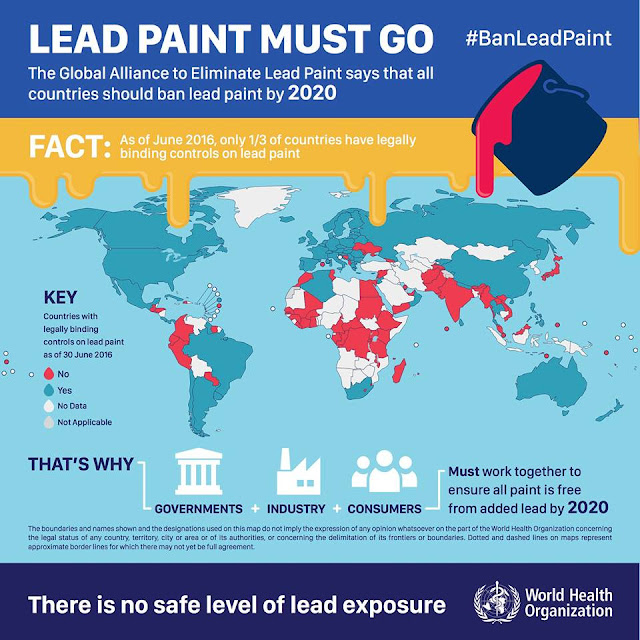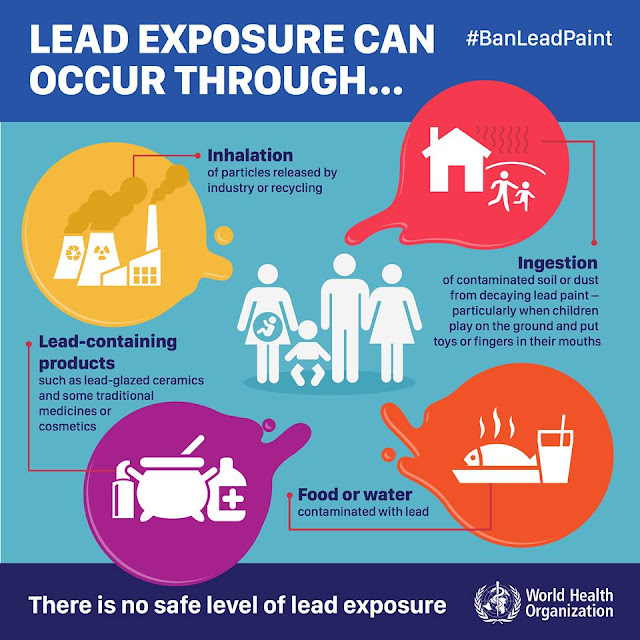The International Lead Poisoning Prevention week of action is an initiative of the Lead Paint Alliance.
- Raise awareness about lead poisoning;
- Highlight countries and partners’ efforts to prevent childhood lead poisoning; and
- Urge further action to eliminate lead paint.






